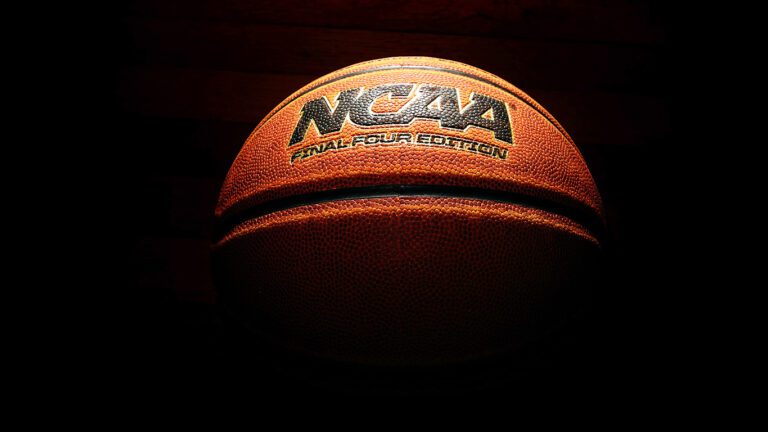The NCAA women’s basketball tournament concluded on Sunday with the LSU Tigers defeating the Iowa Hawkeyes and by the score of 102-85. There are a number of highlights to point out from the game; it was the LSU women’s first national title, Kim Mulkey became the first coach to win titles with multiple programs (Baylor), and the Tigers’ 102-point effort was the highest score in women’s Final Four history. All of that awesome history was made, and yet—because of how the internet works—it was a brief incident of taunting that is driving the narrative of the games recap.
First and foremost, it is important to point out that this year’s tournament was one of, if not the greatest women’s tournament of all-time. What the Iowa and LSU programs accomplished individually created waves in the basketball community, and offered immediate growth to the game of women’s basketball. Additionally, while we will share the context of what transpired between the star players of the game, the general context of our discussion will lie in competitive nature and the incidents that arise within it, rather than taking a stance of right or wrong in this particular instance.
What happened between Caitlin Clark and Angel Reese?
Iowa’s star guard, Caitlin Clark, is one of the best players in women’s basketball today. Her collegiate career was legendary, and she has a promising future in the WNBA ahead of her. She took the national media by storm in the semi-final round of the tournament, however, for a reason outside of her stellar play.
Caitlin Clark didn't bother with defending Raven Johnsonpic.twitter.com/UEOzlTfC9V
— Dime (@DimeUPROXX) April 1, 2023
Clark waved off her assignment, because the opponent was not a threat to shoot, and a narrative of her being disrespectful and cocky was born. In reality, while there is a bit of taunting included in the clip above, Iowa’s entire game plan in that semi-final game was to keep their opponent—who had underwhelming shooting stats—on the perimeter.
Additionally, in the Elite 8 round, Clark was seen on camera flashing a “you can’t see me” taunt after burying her sixth three-point shot in their game against Louisville.
Caitlin Clark hit the "You can't see me" after her sixth 3 👀 pic.twitter.com/gIUOoqZiot
— Just Women’s Sports (@justwsports) March 27, 2023
These are the two events that transpired ahead of Sunday’s championship game that led to some controversy. LSU’s star forward, Angel Reese, took note of Clark’s actions, and used them against her in the championship game celebration. She flashed the “you can’t see me” in her face, and made repeated gestured to her ring finger as time was expiring on the clock. After the game, Reese sited Clark’s “disrespect” to her opponents in the semi-final game as the reason for her actions.
Does trash talk belong in sports? Where do you draw the line?
Now, for our takeaway. Trash talk exists in the heat of the moment, and in all reality, there isn’t much blame or frustration due to either side of this instance. Angel Reese fueled herself before the biggest game of her life with the desire to take down the Goliath of the tournament, and Caitlin Clark received the return fire with grace. It is only when athletes make irrational reactions or cross the line in trash talk that real issues arise.
Outside of ingraining sportsmanship into athletes at the youth level, there isn’t a ton that can be done—by parents or coaches—to prevent trash talk in sports. A lot of athletes actually put heavy stock in their rivalries. Having a reason or a want to beat an individual opponent or a team every time you face off is part of the beauty of sports. The intangible stuff that makes up the excitement of competition is what most athletes play for. As long as nobody crosses the line, or dishes out more than they can take in return, instances like the one that transpired during Sunday’s championship game, between Reese and Clark, offer motivation for everyone involved moving forward.
As a sports parent, it is always good to reinforce good sportsmanship with your athlete, but you should never shy them away from competing intensely.

With our 100% money-back guarantee and vetted coaches, anyone can achieve their full athletic potential. CoachUp is the safest and easiest way to find a coach for personalized training. Find your perfect coach today and become the athlete you want to be!
How useful was this post?
Click on a star to rate it!
Average rating 3.8 / 5. Vote count: 4
No votes so far! Be the first to rate this post.





2 Responses
I don’t agree with this article in it entirety. I believe what Angel Reese did was totally out of line, because her taunting didn’t take place during the competition when the game was on the line or in the heat of battle. That is usually when trash talk takes place. Talking trash after the game is in hand, invading someones space , following them around the court is over the top. Taunting after the game, when your play was not the determining factor or you didn’t even defend the player 1v1 no time during the game is trash. LSU the team beat Iowa the team. Angel Reese didnot beat Caitlin Clark. If Angel had not done what she did, we really would only be talking about the LSU bench Mob and Alexis Morris.
Trash talk should not displayed on the youth level and discouraged by coaches. There is a maturity level that is necessary to understand that someone will take your reactions personally and respond in a ugly manner. So called, rubbing it in one’s face is not good sportsmanship! Both players set poor examples but I guess social media relishes the controversy and gives the players the exposure they crave.